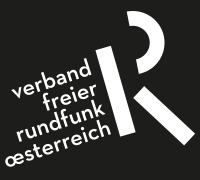The Media Pluralism Monitor 2017 including the Report for Austria


Image: Media Pluralism Monitor / CMPF
"In 2017, the Media Pluralism Monitor (MPM) has examined 28 European Union Member States as well as three Candidate Countries: Turkey, and for the first time Serbia and the Former Yugoslav Republic of Macedonia. The results of this second EU-wide implementation of the MPM show either
general stagnation or deterioration in all of the four major areas encompassed by the MPM: Basic protection, Market plurality, Political independence and Social inclusiveness, and they confirm that
no country analysed is free from risks to media pluralism."
Find here the MPM2017 Press Release.
Have a look at the Media Pluralism Monitor
Results for all 28 Member States and three Canditate Countries here.
Den
Länderbericht für Österreich finden Sie hier. Gerade im Bereich "Social Inclusiveness" stellt der MPM 2017 ein hohes Risiko in Bezug auf "Access to media for minorities" fest und bezieht sich in seinen Beurteilung auch auf den 3. Rundfunksektor, der gerade in diesem Bereich heruasragende Medienleistungen erbringt, und führt folgendes aus: "(...)
Austrian broadcasting laws are still lacking a consistent legal recognition of community media as third media sector in terms of function, mode of operation and financing, albeit community media performs a wide range of socially relevant functions. Subsequently, Austrian media law does not provide sufficient details regarding licensing processes and criteria concerning community media. Especially when it comes to the implementation of digital terrestrial broadcasting via DAB+ (which suits mass media broadcasters with a strong financial back bone), there is no sufficient concept of addressing potential discrimination of non- commercial media due to the lack of financial means that are needed to participate. The Austrian media authorities KommAustria and RTR manage a (not so well remunerated) promotion fund for non-commercial local radio and TV broadcasters, but particular quality standards that apply to the specific functions of community media (such as fostering active volunteer participation in media production as well as engagement in civic society are practically of minor relevance. Independence from governmental, commercial and religious institutions and political parties is one of the eligibility criteria for receiving subsidies; and both the Association of Community Radios and the Alliance Community Television Austria have developed appropriate codes of conduct."
< zurück
